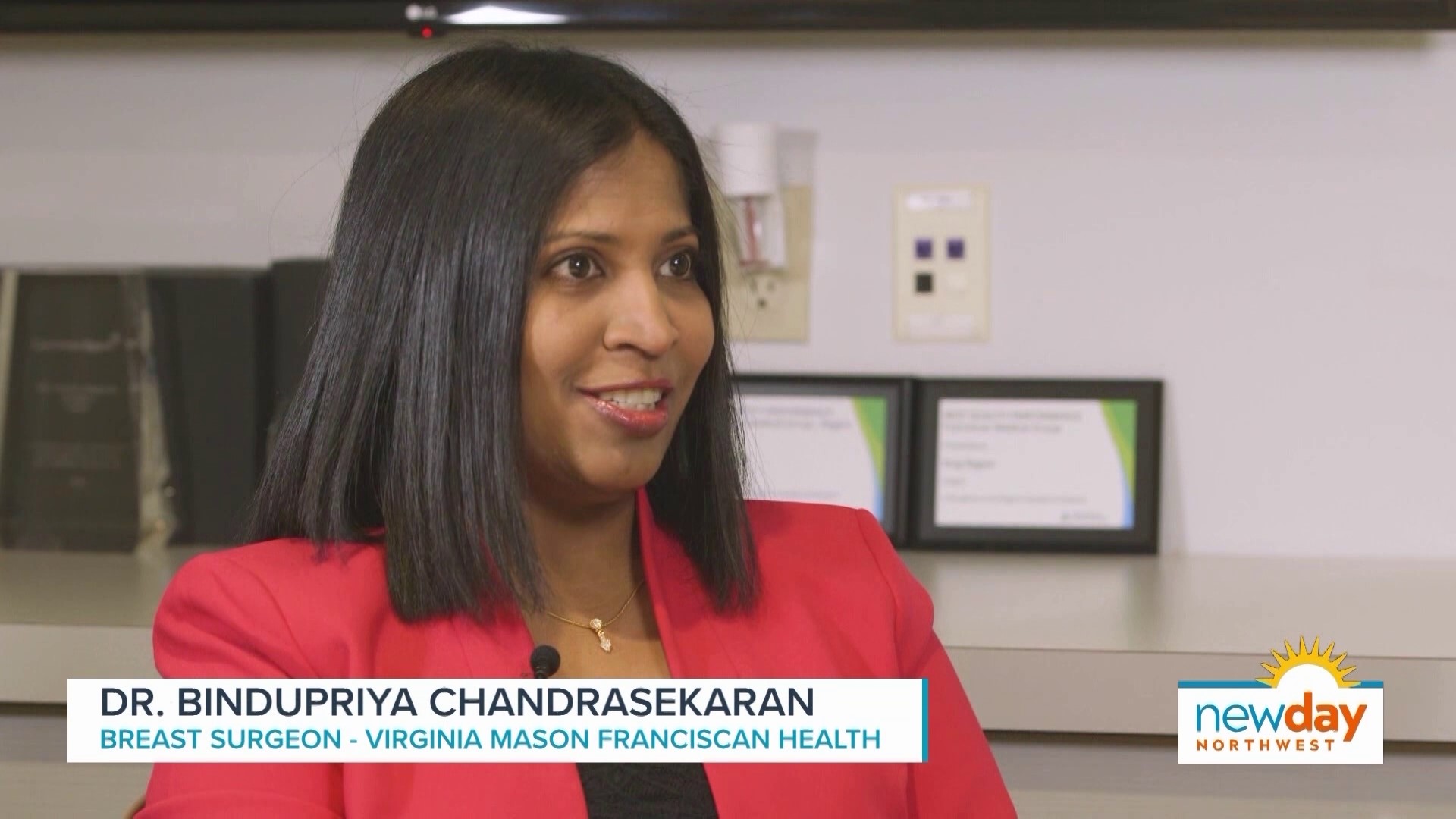SEATTLE — October is Breast Cancer Awareness Month. Breast cancer is the most common cancer in women, and 1 in 8 women will get breast cancer in their lifetime.
Risk factors of breast cancer include being a woman, increasing age and genetic history. Those who have a mother or grandmother who has had breast cancer are at higher risk.
“You need to see your primary care physician, and you would qualify for a high-risk screening,” said Dr. Bindupriya Chandrasekaran, board-certified, fellowship-trained breast surgeon.
Early detection is important. It affects prognosis and the treatments available to breast cancer patients.
“Your treatments are different if it’s found early,” Dr. Chandrasekaran said. “And there’s more options for conservative surgery and less radical surgery.”
Women should start getting annual mammograms at age 40 and have a clinical breast exam by a physician. Those who are at higher risk and/or have a family member with breast cancer may need to start mammograms at age 30 and have MRIs in addition to mammograms.
“By the time cancer is palpable, it is in an advanced stage,” Dr. Chandrasekaran said. “Don’t rely on self-examination alone. I think early detection is the key.”
There are some common misconceptions about mammograms. Though it can cause discomfort, it is not generally painful. Many people think they aren’t needed until you’re much older, but it is recommended you start them at age 40.
“Mammograms save lives,” Dr. Chandrasekaran said. “So, get your mammogram every year, and please encourage your family and friends to get their mammogram.”
Visit the Virginia Mason Franciscan Health website to learn more about breast cancer and screenings.
Sponsored by Virginia Mason Franciscan Health.
Segment Producer Joseph Suttner. Watch New Day Northwest 11 a.m. weekdays on KING 5 and streaming live on KING5.com. Contact New Day.

